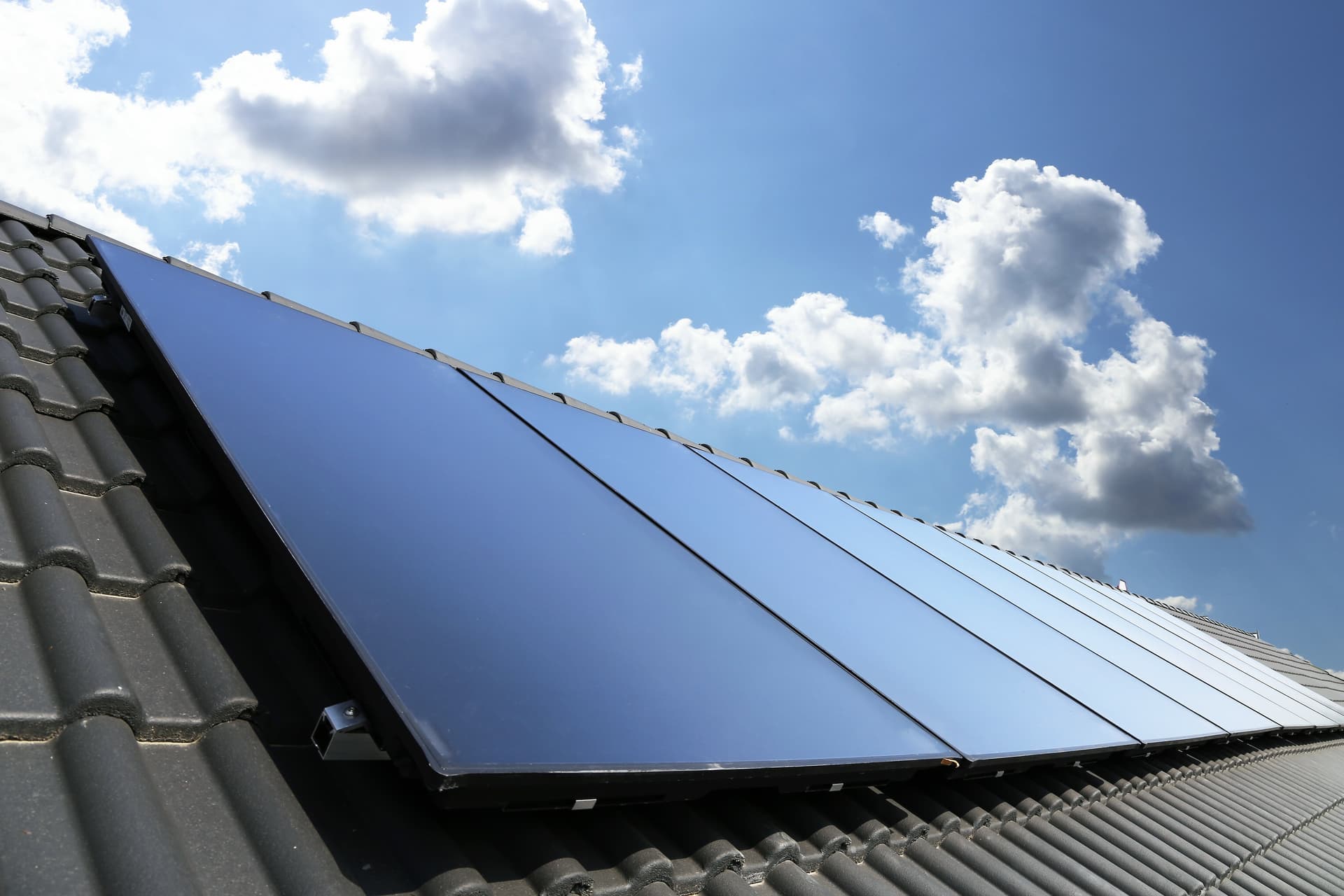Berlin Introduces Mandatory Solar Panels as of 1 January 2023

06.
August 2021
Berlin’s Senator for the Economy, Energy and Public Enterprises, Ramona Pop (Greens), had submitted the draft bill for a solar energy act in late 2020, and it has now completed its legislative process: The law was adopted by Berlin’s House of Representatives on 17 June. It makes photovoltaic systems mandatory for newly constructed residential buildings.
Private Owners Face Compulsory Solar
The Solar Energy Act is a further step in the implementation of the “Masterplan Solar City.” The city’s Senate had resolved to adopt the law as early as March 2020 in order to make the installation of photovoltaic systems on public buildings a binding requirement. The law also provides for advisory services and subsidies via a variety of funding programs. With the general solar requirement now introduced, the installation of photovoltaic systems has also become mandatory for private property owners and for new-build houses. Nor are standing properties exempt. Indeed, the law stipulates that the roofs of standing building must undergo fundamental refurbishments first. Ramona Pop (Greens), the Senator for Economy, Energy and Public Enterprises, has proposed some exceptions under the new law. Exempt are buildings whose effective floor area is less than 50 square metres. The obligation is also waived for houses whose roofs are technically unsuitable for the installation of photovoltaic systems. Wherever the installation poses no problem, the law stipulates that the solar system should cover no less than 30 percent of the roof area. The law also suggests the installation of solar thermal energy or façade PV systems as acceptable alternatives. The goal pursued by Berlin’s Senate is this: By 2050, solar energy is supposed to cover 25% of Berlin’s total electricity requirement. Achieving this goal would cut the city’s carbon footprint by 37,000 tons of CO2 annually.
Will Compulsory Solar Soon be Introduced for the Whole of Germany?
Baden-Württemberg’s governing coalition of Greens and Christian Democrats resolved to introduce a solar requirement for private residential buildings in the coming year, 2022. The requirement will apply to new-build units as well as to comprehensive refurbishments. By contrast, Schleswig-Holstein’s Minister for the Environment, Jan-Philipp Albrecht (Greens), drafted a bill that would limit the solar requirement to non-residential buildings and large parking lots. The Senate of the City of Hamburg decided in December 2020 to prescribe the compulsory installation of photovoltaic systems on the roofs of new buildings as of 2023. Standing buildings will become subject to the same requirement by 2025 whenever their roofs need to be renovated.
The recent resolutions have been criticised by some: Many interest groups are concerned that the residential service charges for tenants will go up as a result of the new regulations. While they speed up the progress toward the climate protection targets, they also add to the cost burdens of tenants. Sources: Berlin’s Senator for the Economy, Energy and Public Enterprises, Ramona Pop (Greens), had submitted the draft bill for a solar energy act in late 2020, and it has now completed its legislative process: The law was adopted by Berlin’s House of Representatives on 17 June. It makes photovoltaic systems mandatory for newly constructed residential buildings. Private Owners Face Compulsory Solar The Solar Energy Act is a further step in the implementation of the “Masterplan Solar City.” The city’s Senate had resolved to adopt the law as early as March 2020 in order to make the installation of photovoltaic systems on public buildings a binding requirement. The law also provides for advisory services and subsidies via a variety of funding programs. With the general solar requirement now introduced, the installation of photovoltaic systems has also become mandatory for private property owners and for new-build houses. Nor are standing properties exempt. Indeed, the law stipulates that the roofs of standing building must undergo fundamental refurbishments first. Ramona Pop (Greens), the Senator for Economy, Energy and Public Enterprises, has proposed some exceptions under the new law. Exempt are buildings whose effective floor area is less than 50 square metres. The obligation is also waived for houses whose roofs are technically unsuitable for the installation of photovoltaic systems. Wherever the installation poses no problem, the law stipulates that the solar system should cover no less than 30 percent of the roof area. The law also suggests the installation of solar thermal energy or façade PV systems as acceptable alternatives. The goal pursued by Berlin’s Senate is this: By 2050, solar energy is supposed to cover 25% of Berlin’s total electricity requirement. Achieving this goal would cut the city’s carbon footprint by 37,000 tons of CO2 annually. Will Compulsory Solar Soon be Introduced for the Whole of Germany? Baden-Württemberg’s governing coalition of Greens and Christian Democrats resolved to introduce a solar requirement for private residential buildings in the coming year, 2022. The requirement will apply to new-build units as well as to comprehensive refurbishments. By contrast, Schleswig-Holstein’s Minister for the Environment, Jan-Philipp Albrecht (Greens), drafted a bill that would limit the solar requirement to non-residential buildings and large parking lots. The Senate of the City of Hamburg decided in December 2020 to prescribe the compulsory installation of photovoltaic systems on the roofs of new buildings as of 2023. Standing buildings will become subject to the same requirement by 2025 whenever their roofs need to be renovated. The recent resolutions have been criticised by some: Many interest groups are concerned that the residential service charges for tenants will go up as a result of the new regulations. While they speed up the progress toward the climate protection targets, they also add to the cost burdens of tenants. Sources: www.berlin.de www.haufe.de